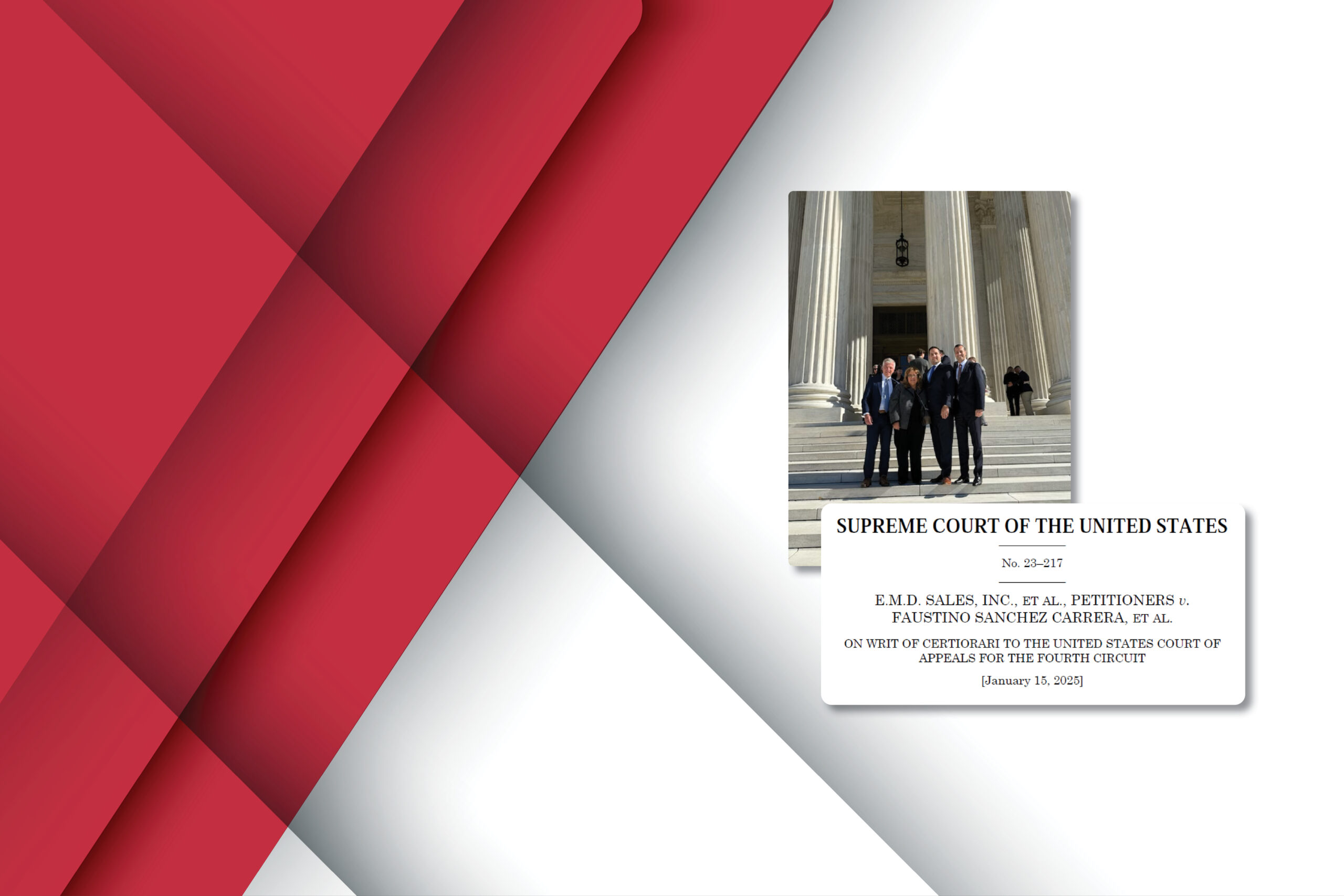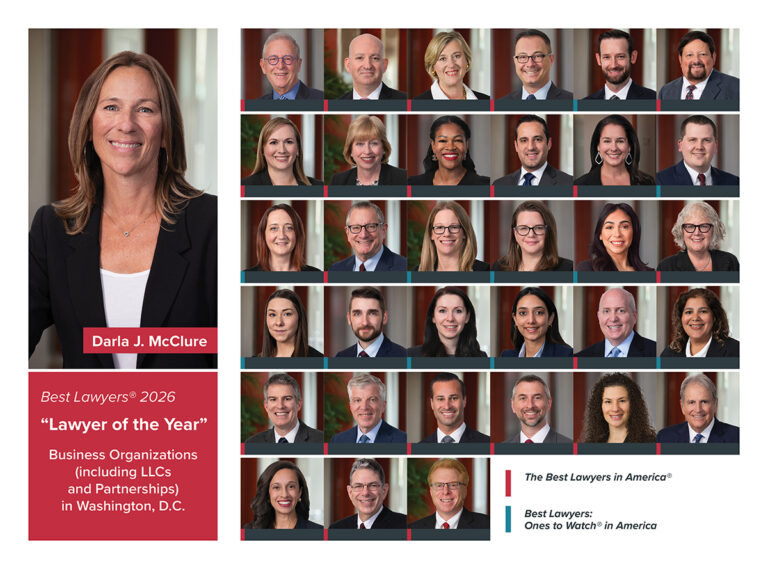January 16th, 2025
Supreme Court Rules 9-0 in Favor of Stein Sperling Client in Landmark FLSA Case
Posted in: Commercial Litigation Employment Law Tagged: Eduardo S. Garcia, Jeffrey M. Schwaber

In a unanimous decision, the U.S. Supreme Court ruled that disputes over overtime exemptions under the Fair Labor Standards Act (FLSA) should be decided using the “preponderance of the evidence” standard, which requires a lower standard of evidence than the “clear and convincing” standard. This ruling underscores the importance of consistent burdens of proof that both employers and employees can count on in the labor relations context.
Stein Sperling worked closely with its co-counsel, the prestigious law firm Williams & Connolly LLP, to present the case to the nation’s highest court. Together, the legal team successfully demonstrated that the heightened evidentiary standard applied to employers in FLSA cases by the Fourth Circuit Court of Appeals for nearly forty years was inconsistent with federal law and precedent.
“This decision represents a victory for judicial consistency and fairness,” said Jeff Schwaber, co-counsel for EMD Sales, Inc. “Our client, Elda Devarie, is an entrepreneur and founder of a grocery distribution business. We are delighted for her. Elda exemplifies the resilience and dedication of so many small business owners who work hard to comply with labor laws and ensure fairness in their workplace. This ruling ensures a more consistent legal landscape for all employers and employees moving forward.”
The case, EMD Sales Inc. v. Carrera, centered on whether three employees classified as outside salespeople were entitled to overtime pay under the FLSA. The Supreme Court’s decision rejects the Fourth Circuit’s imposition of a heightened evidentiary burden on employers, bringing it in line with the majority of the federal circuits. Justice Brett Kavanaugh, writing for the Court, emphasized the importance of adhering to the preponderance standard, applied elsewhere in other employment contexts, stating, “Other workplace protections that vindicate important public interests remain subject to the preponderance standard… This Court has held that a preponderance standard is appropriate for Title VII cases.”
“This decision ensures that the FLSA remains a tool for fairness without imposing an undue burden on businesses that seek to avail themselves of the statutorily permitted exemptions in appropriate circumstances,” said Eduardo Garcia, co-counsel for EMD Sales Inc. “It strikes the critical balance between protecting workers and maintaining a legal environment where businesses can thrive.”
The ruling has significant implications for businesses and workers nationwide, clarifying that exceptions to the default evidentiary standard in civil cases are limited to specific statutory, constitutional, or Supreme Court precedents. Justice Neil Gorsuch, joined by Justice Clarence Thomas in a concurring opinion, reiterated that “courts apply the default standard unless Congress alters it or the Constitution forbids it.”
The case traces its origins to a 2017 lawsuit filed by three employees who argued they were misclassified as exempt employees and denied overtime wages. Prior to Stein Sperling’s involvement, the federal district court in Maryland ruled in their favor, finding that EMD Sales did not meet the heightened clear and convincing evidence standard in establishing the exemption. Stein Sperling was hired to take the case to the Fourth Circuit Court of Appeals, and after the Fourth Circuit ruled that in applying the heightened standard in the Fourth Circuit, it would affirm the district court’s decision, Stein Sperling added Williams & Connelly’s superb Supreme Court practice group to the team and sought and obtained Supreme Court review, and ultimately reversal.
During oral arguments in November 2024, the justices explored why the FLSA should not be subjected to a higher evidentiary standard than other employment statutes like Title VII. The U.S. Department of Justice, in a May 2024 amicus brief, urged the Court to overturn the Fourth Circuit’s ruling, supporting the application of the preponderance of the evidence standard.
The ruling underscores the importance of balance in labor law, ensuring protections for workers while providing clarity for employers navigating complex regulations.







